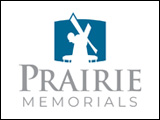This last year there has been a lot of buzz about human rights in Manitoba. The National Museum for Human Rights opened in Winnipeg in the fall, and news stories arise regularly centering on this topic. It’s also a topic that surfaces in health care. There’s one woman that lives at Bethesda Place that will often retort to a request, “I have my rights.” At Bethesda Place we post on every Pod a framed copy of our “Resident’s Rights”.
A while back a nurse and I were “kibitzing” about human rights and that conversation started me thinking about where our “rights” come from. In my conception of a “right”, it is bestowed upon someone by an authority. On July 4, 1776 the thirteen colonies that would comprise what would become known as the United States of America signed the Declaration of Independence. In this document in the second paragraph we read these words, “We hold these truths to be self-evident, that all men are created equal, that they are endowed by their Creator with certain unalienable Rights, that among these are Life, Liberty and the pursuit of Happiness.”
The founding fathers of that nation believed that they derived these rights from the Creator. However we do not live in a nation that is uniformly deistic and many would not recognize either the existence or the prerogative of God the Creator to endow rights upon human kind. So the question persists, from whom do we derive our rights? Now I would agree with the Founding Fathers of the United States, but if you are not a deist then some other authority must be the bestower of these rights. Is it the government under which we live? This doesn’t seem to be a sufficient answer, for we in the western world seem quite justified in condemning governments that chose to bestow or withhold rights differently than we do.
The concept of human rights as it is used today seems to derive the rights it speaks of from itself: humanity, by virtue of who we are, have rights that are inherent; at least this seems to be the current philosophical opinion. Yet, at the same time we continue to either seek to gain “rights” from authorities over us or willingly surrender rights to the governments over us, using “rights” as a sort of currency. For example, we are quickly surrendering our rights to privacy in exchange for safety and the conveniences offered by all the many uses of the wired and wireless technologies we have become so fond of. But this creates several unsettling anomalies.
One is our willingness to surrender our “right” in exchange for something we value more. Presently this is being played out in many western countries where the right to privacy is being exchanged for the promise of safety.
Another is our willingness to surrender our rights for the greater good. A prime Canadian example of this is our Canadian value of universal health care which sacrifices speedy access to health care in exchange for universal access.
Another is the unspoken, yet evident “cast” system which exists even in the free world where certain rights are bestowed or withheld based on certain prejudicial criterion such as race, religion, economic status just to name a few.
I believe it is critical that we think through this question: from whom or from what do we derive our rights? There is far too much sloppy thinking about “rights” and much of that sloppiness could be corrected if we would at least identify where we believe our rights come from. We may not agree, but at least our conversations would be more rational. Rational discourse about human rights is important for this topic so quickly stirs our passions which at times override our reason when we speak of these things in open, public discourse.
Chaplain's Corner was written by Bethesda Place now retired chaplain Larry Hirst. The views and opinions expressed in this blog are solely that of the writer and do not represent the views or opinions of people, institutions or organizations that the writer may have been associated with professionally.



